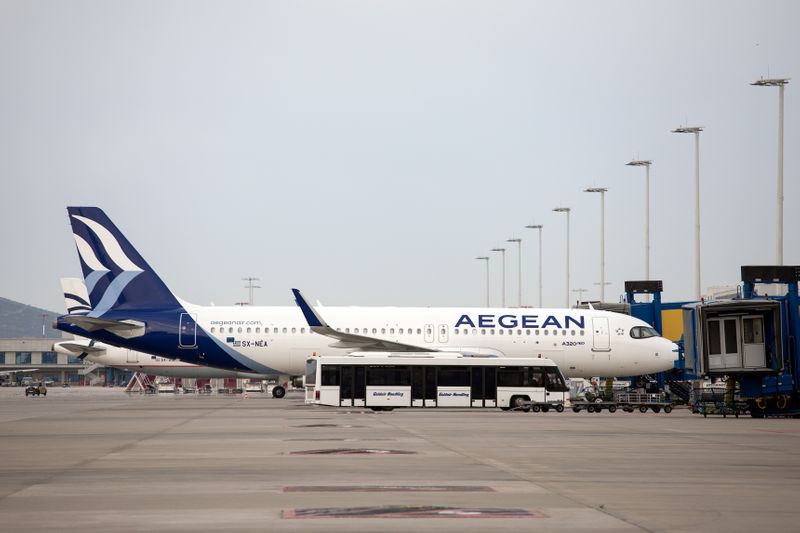ATHENS (Reuters) – Greece is considering a capital injection of around 120 million euros ($142.55 million) for Aegean Airlines, the government said on Monday, adding the nation’s biggest carrier was crucial to the tourist-reliant economy.
The news drove the carrier’s shares 10% lower to 3.79 euros. By 1400 GMT, it recovered to trade 8.7% lower.
Under the plan, the government would receive warrants in exchange for providing funds for the privately-owned Aegean Airlines, the government’s chief spokesman Stelios Petsas said.
Aegean shareholders would in addition provide another 60 million euros.
In the longer term, the state would get its money back as air transport provided “the wings that bring tourists to the country,” Petsas said.
“With the warrants the state will get, when recovery comes, the price of the shares will increase, meaning the state will get money back when this coronavirus adventure is over,” he said.
But analysts, explaining the share price fall, said more detail was needed.
“Lack of clarity on the specifics of the state aid, coupled with the sharp climb that started earlier this month, are the reasons for the loss of altitude today,” said an analyst who declined to be named.
Aegean’s 2019 balance sheet, the latest available data, showed the airline had total equity of 328.4 mln euros, or 71.4 million shares outstanding.
Aegean, a member of the Star Alliance airline group, went into the red in the second quarter, reporting a net loss of 73.4 million euros after the pandemic forced the grounding of planes. Its revenue fell 64% in the first half of 2020.
The warrants will give the government the right to buy shares in the airline at a set price over a specific time period.
Petsas said the plan was being developed in a way to secure approval from European authorities that assess whether state aid is fair.
In May, Aegean said it would ask the country’s big banks for 150 million euros in loans under the COVID-19 Enterprise Guarantee Fund, to deal with hardship related to the pandemic.
Under that programme, the state guarantee would be set at 80% for loans lasting up to five years and for up to 25% of annual turnover. The sum of 150 million euros equals about 11% of the carrier’s turnover.
The airline operated less than 50% of its scheduled flights in August with particularly low load factors as the novel coronavirus led to travel restrictions.
($1 = 0.8418 euros)
(Reporting by Renee Maltezou and George Georgiopoulos; Editing by Susan Fenton and Barbara Lewis)





















